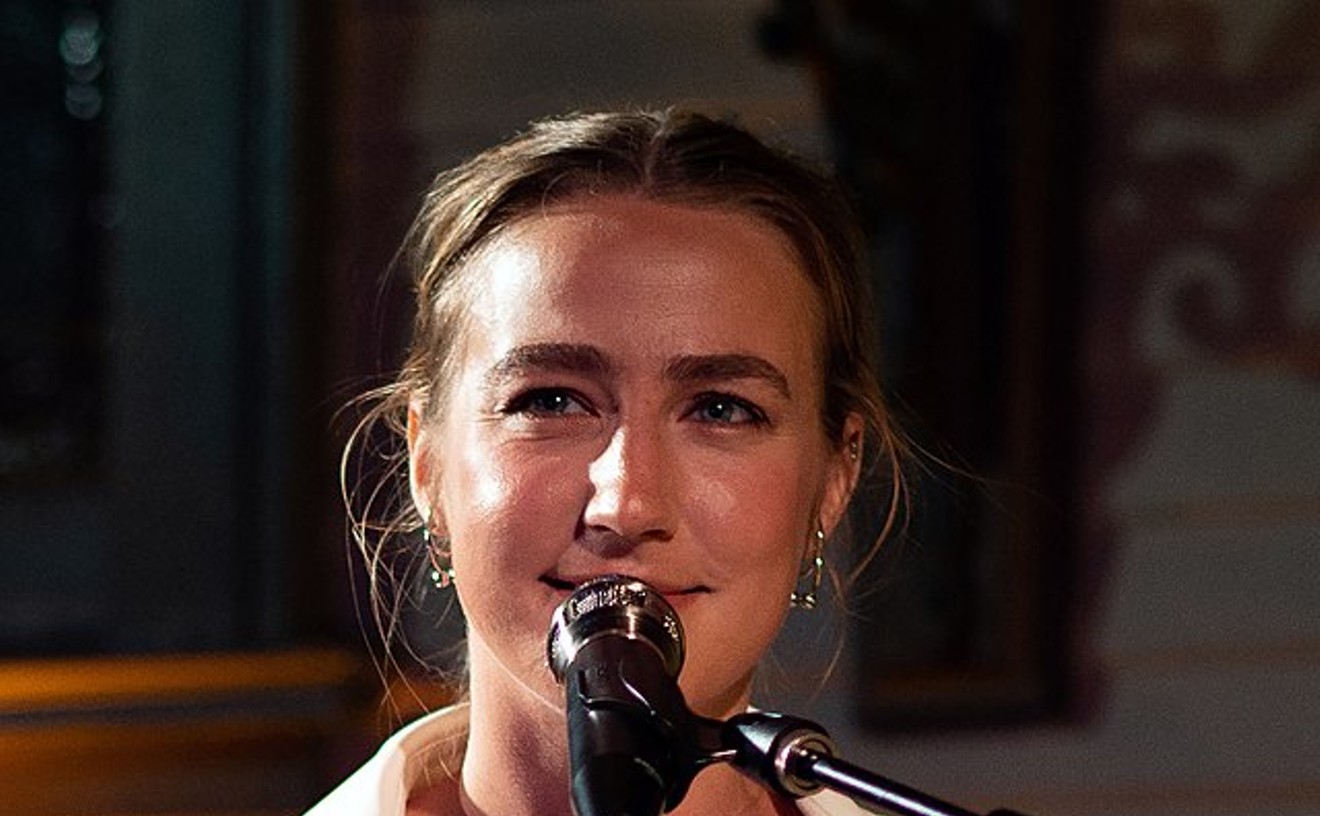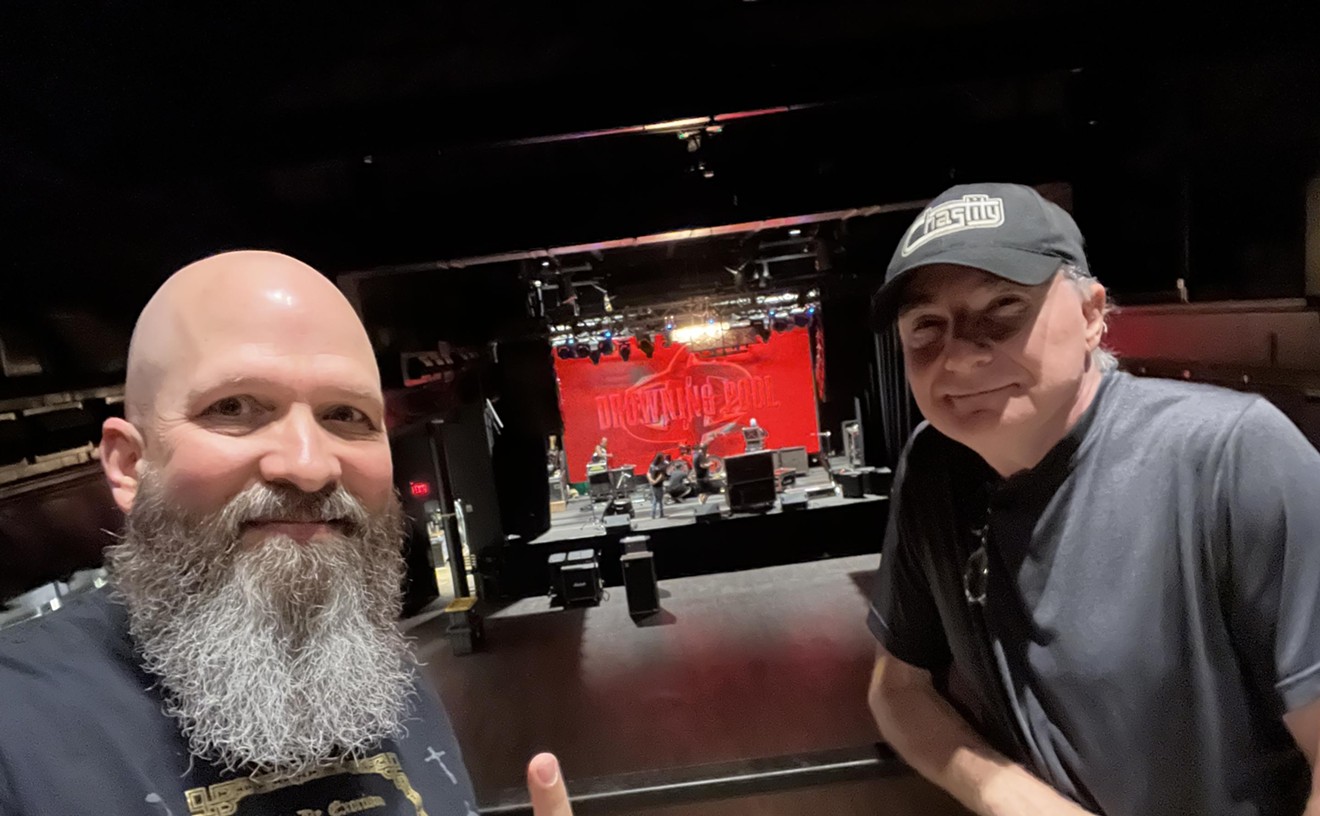"The voices, the sounds we use, they are from another time, perhaps several decades ago," says Books sampler/instrumentalist Paul de Jong on the phone from New York, the starting place of their first-ever tour. "Taken out of context, those words take on a completely new meaning, one that more directly involves the listener."
And listener participation is key to understanding the compositions of de Jong and fellow sound collage conspirator Nick Zammuto. Formed in 2000 in Massachusetts, the duo has produced three of the most intriguing and difficult-to-classify efforts that fall under the modern rock heading. Their debut Thoughts of Food and follow-up The Lemon of Pink are neo-classicist in execution but archaeological in scope.
"Ours is the new folk music," says de Jong. "We make our own instruments, use our own libraries of sound bites while trying to create something universally human."
Lost and Safe is the first Books effort where the humanity clearly shines. Prior releases saw the duo utilizing a cut-and-paste editing technique (obviously influenced by Frank Zappa) that cast some of the best compositions in an overly academic light. By increasing the rhythmic pulse and including extended passages actually sung by Zammuto, the eleven cuts on Lost are the closest the duo has come to genuine songs.
"Nick and I made a move toward more linear song structures," de Jong says. "We knew we wanted to play live, so we made Lost and Safe more coherent in presentation."
"Balance, repetition, composition, mirrors," a sample from "Smells Like Content," neatly encapsulates the appeal of the Books and Lost in particular. The song's subdued percussion belies the rich detail of both the samples and the original lyrics. Oftentimes, Zammuto will simply repeat the sample, word for word. Sung in a high, dry voice, his phrasing is awkward but somehow mirrors the cadence of the sample. This dynamic subverts the common notions of meaning and intent, touching on influences as wide-ranging as Stockhausen and the groundbreaking work of John Cage.
"Cage's work was one of limitless creativity," de Jong says. "We are directors of sound working beneath academia, searching for the quirks of human nature that somehow got recorded on tape."
The found recordings on Lost and Safe have drawn attention for having a darker tone and perhaps a political motivation. Lines such as "A culture is no better than its woods" and "This great society is going smash" are cryptic messages from other eras that seem purposefully rendered. But the Books dismiss such an interpretation.
"I see Lost as our most optimistic record, our gospel record," de Jong says. "If people feel darker themselves about this effort, it is because these are grim times."
And as they do with politics, the Books also shy away from trying to put a label on their sound. Their press materials call what they do "folktronica," but de Jong is dubious. "It can be pretty ridiculous," he says. "We try to steer away from labels all together. We are more interested in the strangeness of the human voice, the quirks of language and literary meaning, and the beauty of historical recordings."
It's a concept that's better heard in song than in a quote, like when a Japanese flight attendant thanks plane passengers on "Tokyo" from Lemon or a bizarre newsman narrates a street painting scene in "Venice" from Lost. Somehow, the duo turns potentially cold samples into intangible warmth amidst their compositions. As Zammuto mimics the field recordings with guitar or banjo, de Jong uses his cello to support or subvert the melody. When the two musicians lock together, the effect is much like that of avant-garde pioneers Terry Riley and Steve Reich.
Yet despite the array of stodgy influences, the final result is organic and subtle. Ambient in ways Eno would admire, the band has yet to capitulate to the remix trend or subject its music to dance-floor anonymity. Whatever the context or level of production, the music is far removed from what most would classify as pop, which makes the band's increasing fame all the more surprising.
"Of course, we are flattered and happy for the attention," says de Jong. "We seem to be striking a chord with a large and varied group of people, from teenagers to middle-aged couples."
Zammuto and de Jong have developed a multimedia presentation, complete with new compositions and videos that have not appeared before, in order to translate their sound to the live setting. Some items, like the collage editing, are simply not transferable: "We use so many found sounds and items from nature," de Jong says. "After all, we can't bring a forest onto the stage."
What attracts such a diverse audience to music so far out of the mainstream? What do people find intriguing about fractured cello solos, randomly arranged recordings of half-century old commercials and tapping on plastic pipes as percussion?
"We evoke memories," de Jong says flatly. "We look for forgotten sounds and recontextualize them." Indeed, these forgotten sounds coalesce into a new kind of documentation--a preservation of a secret, forgotten history. In these fragments of other people's lives, these aural postcards left to crumble in a Salvation Army crate, the Books have rearranged memories, clouded their meaning with cellos and banjos and left it to the listener to make sense of it all. Together, the Books and their listeners create a collective rumbling.










